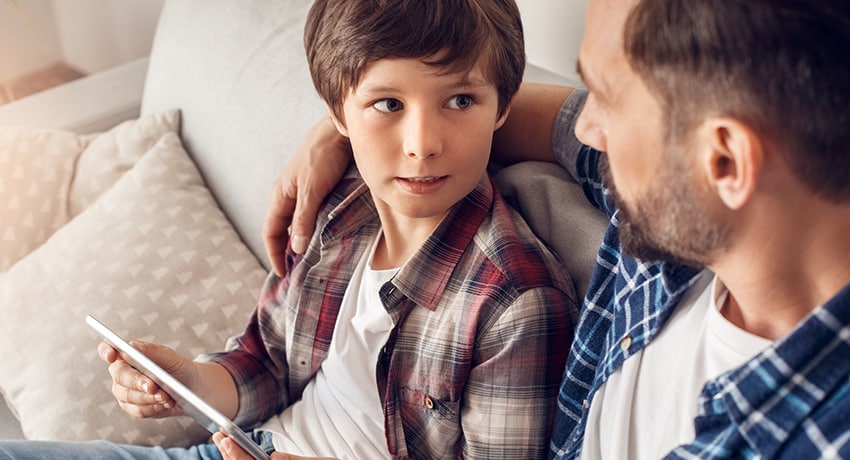With updates regarding Russia’s invasion of Ukraine on abundant TV channels and websites, it’s almost impossible to shield children from the unsettling news. Nor should they be, according to Leslie K. Taylor, PhD, child and adolescent psychologist with UT Physicians.

“There are many reasons why these discussions are needed. Children and teens may be hearing about recent events in school,” she explained. “They may also have family members who are veterans or in the armed forces, so they may have questions or concerns about what will happen.”
Taylor, an assistant professor in the Louis A. Faillace, MD, Department of Psychiatry and Behavioral Sciences at McGovern Medical School and clinical director of Child Services for the Trauma and Resilience Center at UTHealth Houston, suggests breaking down the conversation based on the age of the child.
Ages 5 to 8
In this age group, it’s essential to let the child take the lead in the discussion. Engaging with them in this manner can help determine what they have already seen or know. Distinguishing fantasy from reality may be challenging for younger children, therefore parents or caregivers should focus on helping them understand what is really happening.
“A replayed video clip on the news, for example, is not a unique event. It happened once and this is what children need to know,” said Taylor. “Ask how they feel about it and while discussing it, reassure your child that they are safe and you will continue to help them stay that way.”
Taylor shares that kids ages 5 to 8 may have an easier time expressing their emotions through drawing, painting, or playing.
Ages 9 to 12
Similar to the younger group, it’s best for children ages 9 to 12 to take the lead in this conversation. If they have questions, ask them what they know and how this information was learned. This is a perfect time to clear up any misconceptions they may have.
Global disagreements or armed conflicts can sometimes bring about prejudices or unhealthy beliefs, and parents can make important corrections. It may also be the case that your child doesn’t talk about what’s happening a lot, and this is ok too, as long as they know they can talk to you about it if they have questions.
“The ability to think abstractly is just developing for this age group, so having a concrete visual, like a map or globe, can illustrate for them where the countries are in relation to the U.S.,” explained Taylor. “Doing this can help increase their sense of safety.”
Additionally, children this age may focus on the unfairness of the invasion and have difficulty understanding its injustice. While talking to them, consider the key message you want them to retain and make sure it’s communicated.
Ages 13 and older
Older children may focus on complex information about the attack, such as relevant historical information, and question how these events could affect their future.
“Encourage your older children to research these topics through reputable news sources and then be ready to have open and honest discussions about it together,” suggested Taylor.
Major takeaways
Children often look to their parents as models for their emotional and behavioral responses. Taylor suggests it’s best to let them know it’s normal to experience worry about current events while acknowledging their feelings, thoughts, and reactions.
“If children seem to develop any physical symptoms, disruptions in sleep or appetite, or difficulties separating from parents in response to what’s happening in the world, it could be a sign to reach out to a mental health professional,” she said.
It may also be helpful to create a sense of hopefulness by brainstorming meaningful ways to help those who are affected. Taylor recommends contributing time or materials to international organizations to show support. “Having an outlet for their expression, such as writing letters to elected officials or newspapers or drawing what they are experiencing can help them process emotions throughout this difficult time,” shared Taylor.



